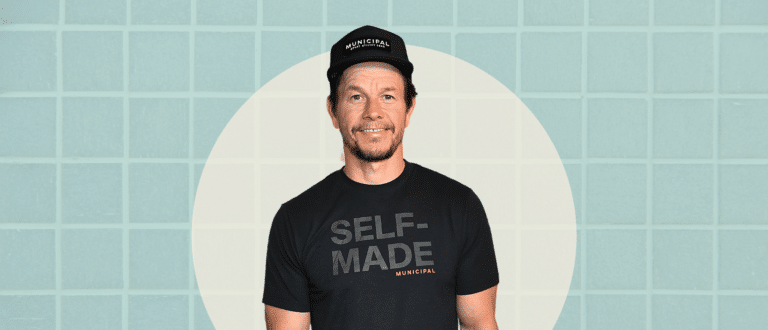The Secret to Michael Chernow’s Success? Extreme Accountability
What would you do if you knew you couldn’t fail? Open a restaurant in one of the most competitive markets in the world? Start a business or three? Host a TV show? Build an empire? In the case of Michael Chernow, the answer is all of the above—and then some.
As co-founder of the Meatball Shop and founder of Seamore’s (a sustainable seafood restaurant) and Kreatures of Habit (a wellness brand that includes a line-up of his famous daily oatmeal), and host of the Kreatures of Habit podcast, Chernow, age 42, is the picture of success.
But he wasn’t always so successful. Growing up in New York City, Chernow describes his childhood as “rough and tumble.” As his mental health tanked, Chernow turned to drugs and alcohol for comfort. “I was a total mess,” he says.
How did Chernow turn things around? In a recent conversation with Hone Health co-founder Saad Alam, Chernow talked about sobriety, motivation, and building habits that last. His approach is—to put it lightly— intense. But Chernow is living proof that living on the extreme edge works.
Stop Reacting to Life
Chernow got into the restaurant biz at 12 years old and quickly fell into the hard-living scene. “I dove deep into the world of alcohol and drugs,” he says. “I was working nights, and I’d start my day at 4:30, 5:00 p.m. with a drink.”
“Back then, it was all about me, myself, and I,” he says, “But I was hiding from life, reacting to it.”
When he was 23, Chernow made the decision to get sober. “I thought ‘I’m never going to hook up with an attractive woman again’, ‘I’m going to spend my life in the fucking library.’ You know? I didn’t know what life was like without the party.”
But with the help of two sober friends, Chernow shifted from being a passenger of his own life to taking the wheel. “These guys very quickly introduced me to fitness, nutrition, and spirituality. And that’s where the structure of my life began,” he says, “I’ve built my life around sobriety.”
Embrace Pain
Most of us avoid discomfort and adversity. Chernow runs into it, face first. “I’m a glutton for pain,” he says. When his mind tries to talk him out of hard situations—emerging his body in a freezing plunge tub or pumping out a CrossFit workout—he reminds himself of what’s on the other side. “You know when you walk into war, you’re going to feel better on the way out,” he explains.
Chernow has put his body through the wringer. He’s been a competitive natural bodybuilder, had his ass kicked in the Muay Thai ring, and slogged through multiple marathons. Now, he has his sights set on competing in the CrossFit Games. Chernow’s starting from scratch, but he doesn’t let that faze him. “Understanding that I have the ability to commit, I’m not afraid of anything. There are very few things I don’t believe I’m capable of doing,” he says. That mindset takes time to develop, but according to Chernow, it’s available to anyone. “Don’t let pain or the opinions of others dissuade your drive, and you’re going get there,” he adds.
Eat For Your Goals
When Chernow first got sober his diet was extremely simple: oatmeal for breakfast, and chicken and broccoli for lunch and dinner…for three years straight. “It was really simple at the time, but it worked,” he says. Over the years, he’s added to it. “Now, I articulate my nutrition based on my goals,” he says.
“For years my focus was being lean, so not a lot of carbohydrates, high in protein, and the lowest in fat I’ve ever been,” Chernow says. While this may have helped him achieve his bodybuilding goals, he admits it wasn’t the healthiest. “Eating for performance is far healthier than eating for aesthetics,” he adds.
“Now, I eat for CrossFit performance. So I eat a ton of carbohydrates, but I’m bulkier,” he says. We’ll assume that includes loads of his Kreatures of Habit oats. He also leans more on fats rich in heart-healthy omega-3s to boost recovery and brain health. “When I was bodybuilding I didn’t care about cognitive health or recovery, I just wanted to be lean. Now, recovery is everything, so my diet is more balanced,” he adds.
Just Do The Thing
“I’m a dreamer and a visionary, and so I always have a five-year vision for anything I do,” says Chernow. “I understand what the goal is, and then I slowly work myself backward from there.” But Chernow has learned overplanning and overanalyzing the details can get in the way.
“I just started training for CrossFit, and I’m humbled every single day,” he says. “I’ve never done Olympic lifts before, and they’re so technical.” The way he sees it, he could walk up to the barbell and overanalyze every little detail to the point that he psychs himself out from doing it at all. Or he could just lift the barbell. He might do it wrong, but he can worry about perfecting his form later. “That’s how I think about life: I’d rather build the confidence that I can do something, and then slowly perfect it, than not do it at all,” he says.
Start Small
Chernow’s routine is insane. “It’s probably way too structured and way too much for most people, but [my morning routine] is like 17 wins stacked up. By the time I’m done at 6:30 in the morning, and I walk back into my house and see my wife and kids, I’m like Superman. I’m impenetrable,” he explains.
But Chernow knows the transformation from Clark Kent to Man of Steel takes time. “There are a ton of ways to optimize, but just start by going to bed early,” he says. If you can commit to going to bed by nine on a regular basis, you’ll have a better chance of getting good sleep. You’ll also have a better chance of getting up at 5, 5:30 in the morning. “Now you have a good hour of time before the rest of the world gets up so that you can start doing things to optimize and start building your confidence and self-esteem.”
Set Boundaries
“I am without a doubt an obsessive human. For years, I worked 90 hours a week and I fit in my workouts,” he says. He went all-in launching his restaurants, then hit the road to film a TV show right after one of his sons was born. “I missed the first two years of my son’s life. I’ll never get that back,” he says. Missing out on big life moments served as Chernow’s wake-up call to set boundaries.
“Over the years as I’ve evolved I’ve learned that boundaries are so important,” he says. “Today I’m far more focused on feeling good with boundaries, than doing what I think I should be doing based on what I’ve seen others do before me.”
Chernow’s boundaries of choice? “On a normal day, I’m now working 7 hours a day, 8 hours tops,” he says. “If I can’t figure out how to get it done in 8 hours, it’s a sign I haven’t set myself up with the right team.”















